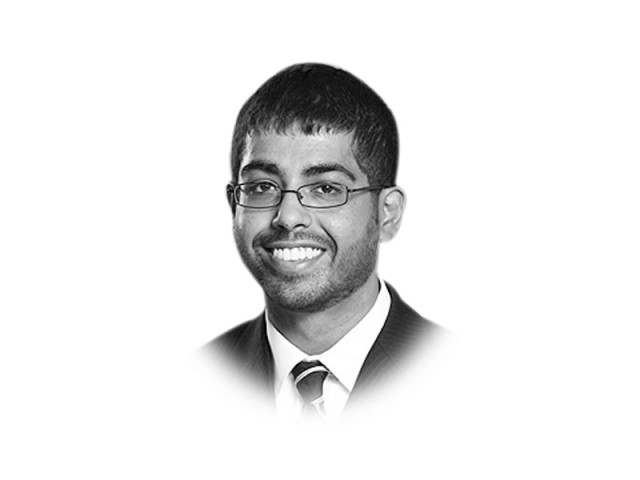Fighting discriminatory surveillance in New York
Powerful civil liberties groups like the American Civil Liberties Union have vociferously criticised NYPD’s tactics.

The writer is an adjunct professor at the Howard University School of Law and holds a Juris Doctorate and LLM specialising in international law. He tweets @warishusain
The American public has been slowly learning about the NYPD’s targeting of young African-Americans and Latinos, through ‘stop and frisk’ searches. These searches allow for the police to pat-down an individual, even if they don’t have probable cause to suspect them of criminal activity. Under the guise of ‘keeping the city safe’, the police targeted racial/ethnic minorities, subjecting them to unreasonable searches, while their white counterparts enjoyed their constitutional protections from such abuse.
The reaction to these revelations has been generally focused on the African-American and Latino communities. However, a South Asian grassroots organisation called Desis Rising Up and Moving (DRUM) has fostered a public awareness campaign to demonstrate how South Asian-Americans have also been targets. They published testimonials from American-born citizens of South Asian descent, some as young as 13-year-old, who have been discriminatorily selected for ‘stop and frisk’ searches by the NYPD. Some stated that they had been searched dozens of times, one even being asked to strip naked in the street.
If that were not horrifying enough, the Associated Press has recently released documents that reveal the expansive extent of the NYPD’s surveillance of Muslims. Mosques were designated as terrorist centres in police interoffice reports. This meant that even though the mosque attendees were not directly suspected of criminal activity, they could constantly be monitored by video cameras or plainclothes officers.
One could expect such tactics from oppressive regimes, but many are shocked to learn of their usage in New York. The police have regularly conducted unwarranted surveillance of Islamic elementary schools, ethnic restaurants and grocery stores. Officers monitored cricket fields, noting the ethnic composition of each field. They even created ethnic maps and lists of individuals from each ethnic minority, most of whom were not suspected of any wrongdoing, but were monitored just the same. It was not just Muslim groups that were targeted, but even non-religious institutions like the Arab-American Association. Linda Sarsour, executive director of the Association, expressed her disappointment at the development.
Many powerful national civil liberties groups like the American Civil Liberties Union have vociferously criticised the NYPD’s tactics. More significantly, Muslim and South Asian groups have come out to publicly and legally attack the police’s discriminatory policies.
The community has not only shown its capacity to organise in defence of its rights through public advocacy, but there is also a pending lawsuit against the NYPD entitled “Hasan v. City of New York”. The petition was filed by Muslim Advocates, a non-profit group representing eight Muslim-Americans, who are seeking a judicial order to stop the police’s discriminatory surveillance and delete past records. The plaintiffs are likely hoping that they can ride the momentum of the “Floyd v. City of New York” decision, where a federal judge ruled that the NYPD’s ‘stop and frisk’ searches were unconstitutionally discriminatory against people of colour. This has led to the appointment of a federal monitor, tasked with ensuring that the NYPD dismantle its discriminatory policies. The plaintiffs in the Hasan case likely hope that the courts will recognise that discrimination based on ethnicity or religion is also prohibited by the US Constitution.
In the aftermath of the Floyd case, there is pressure on the secular and religious minority groups mentioned above to work on forcing the city to stop all forms of discriminatory searches. Despite the hard fight ahead, these groups have shown their capability to organise in support of a common goal through tolerant, peaceful and legal means.
Published in The Express Tribune, September 8th, 2013.
Like Opinion & Editorial on Facebook, follow @ETOpEd on Twitter to receive all updates on all our daily pieces.















COMMENTS
Comments are moderated and generally will be posted if they are on-topic and not abusive.
For more information, please see our Comments FAQ